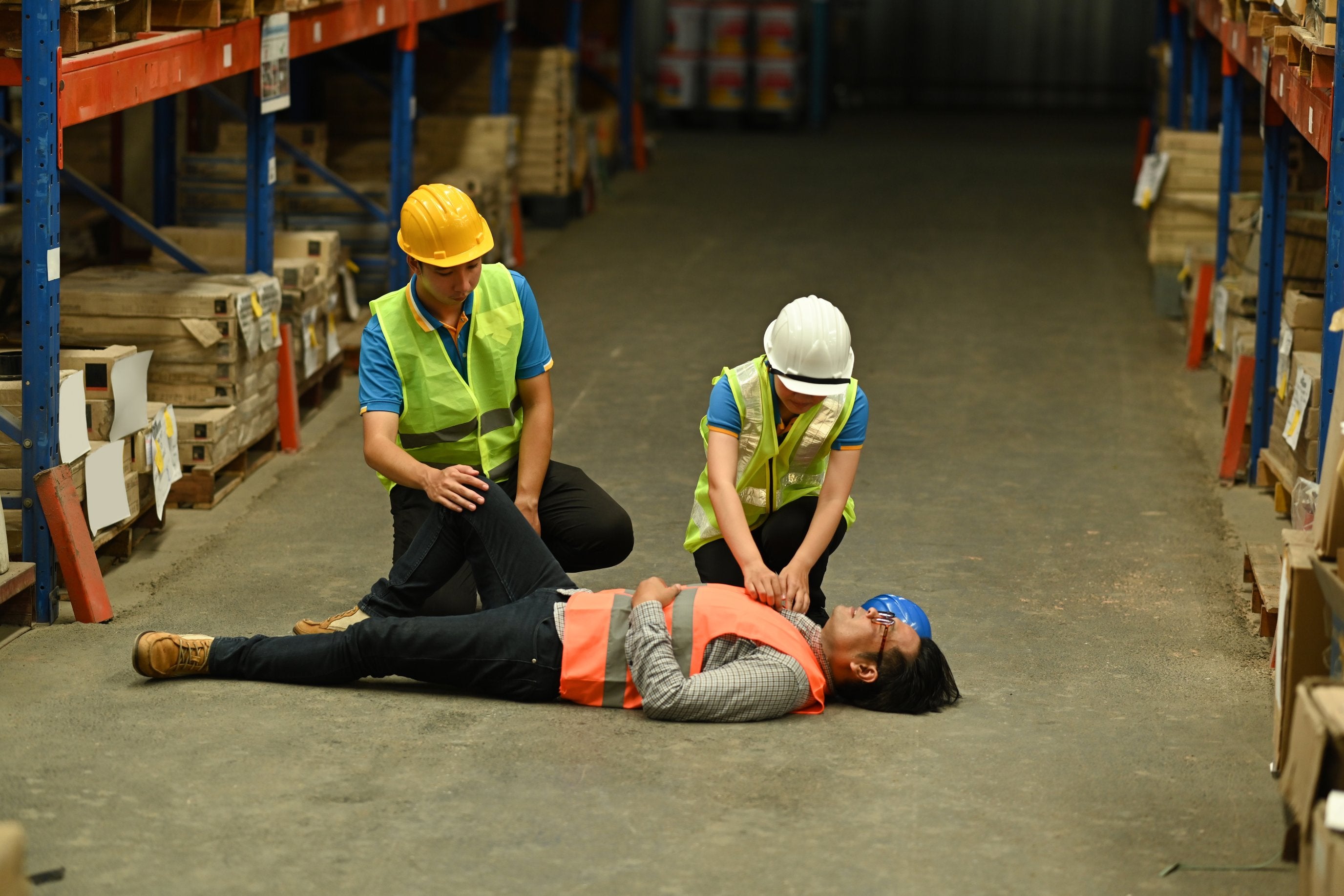You have no items in your shopping basket.
Dr Richard Dune
10-03-2023
Are you a workplace first aider?
Image by kckate16 via Envato Elements
Understanding your role and responsibilities in workplace safety
The Health and Safety Executive (HSE) publishes guidance for providing workplace first aid in the UK. To comply with the regulations, employers must provide several levels of provision, including Appointed Persons (AP), EFAW, FAW, and additional training.
In this blog, Dr Richard Dune provides an overview of the HSE’s guidance on first aid provision, including the four-layer framework that has been in place for many years. He will discuss the importance of maintaining a safe working environment by following the regulations and demonstrating compliance with the organisation's needs assessment.
Who is a first aider?
A first aider is trained to respond to emergencies and assist injured or ill people who require immediate medical attention. To ensure that the person handling emergency procedures is competent and knowledgeable, they must participate in appropriate first aid training and be certified.
First aid certification and competence
Various certifications and competencies are available in workplace first aid, including:
- First aid at work
- Emergency first aid at work
- Any other level of training or qualification that is appropriate to the circumstances.
Which courses should first aiders attend?
To become a certified first aider, one must receive training and assessment at the appropriate level. First aiders should be prepared to deal with various medical emergencies, including injuries and illnesses identified in the first aid needs assessment.
The First Aid At Work (FAW) training course incorporates the EFAW syllabus and provides the first aider with the skills to deal with various injuries and illnesses. In contrast, Emergency First Aid At Work (EFAW) training offers first aiders the skills to treat injured or ill workers in an emergency.
First aid certification validity
Certifications for first aid training vary in validity depending on the type and purpose of the training. The validity of a certificate of first aid at work is three years. First aiders must undergo requalification courses before their certificates expire to obtain another three-year certificate. First aiders whose certificates have expired are no longer considered competent to perform first aid at work.
Under HSE guidance, first aiders should undergo annual refresher training. In light of the abundance of evidence regarding the severity of 'first aid skill fade' and to maintain basic skills, it is recommended that learners receive annual refreshers.
How many first aiders does an employer need?
Employers must conduct a first aid needs assessment to determine how many first aiders are required. To determine the exact number of first aiders to have, it is essential to consider the particular circumstances of the workplace.
Can first aiders be subjected to legal action?
Some first aiders worry that they may be sued or get in trouble if they get things wrong. Despite the lack of specific advice on this topic, it is unlikely that any action would be taken against a first aider using the training they have received in first aid.
In general, it is recommended that you seek legal advice from your employer's insurance company concerning the extent of a first aider's liability coverage.
Conclusion
Employees trained in first aid are more likely to be aware of workplace safety and respond to emergencies more effectively. In more severe cases, first aid can help save lives.
Employers must provide appropriate first aid training to ensure the greatest chance of accident-free working conditions. Therefore, you must comply with the relevant health and safety regulations to ensure your safety and enhance the effectiveness of your work environment.
Take the next step in workplace safety!
Empower your workplace with effective first aid skills through our expert-led training courses. Click here to explore our Workplace First Aid Courses and discover how we can help you stay prepared for emergencies.
Need CPD-accredited training? Browse our extensive Basic Life Support and Emergency First Aid catalogue.
See our accreditation credentials on the CPD Certification Service website and understand why organisations trust us for professional development.
Last updated on 09-01-2025

References and resources
Health and Safety Executive (2023) - Are you a first-aider? - First aid at work.
Health and Safety Executive (2023) - The Health and Safety (First-Aid) Regulations 1981. Approved Code of Practice and guidance.
Health and Safety Executive (2023) - Basic advice on first aid at work.
References and resources

Health and Safety Executive (2023) - Are you a first-aider? - First aid at work.
Health and Safety Executive (2023) - The Health and Safety (First-Aid) Regulations 1981. Approved Code of Practice and guidance.
Health and Safety Executive (2023) - Basic advice on first aid at work.
About the author
Dr Richard Dune
With over 20 years of experience, Dr Richard Dune blends a rich background in NHS, the private sector, academia, and research settings. His forte lies in clinical R&D, advancing healthcare tech, workforce development and governance. His leadership ensures regulatory compliance and innovation align seamlessly.

Related blog articles
View allContact us
Complete the form below to start your ComplyPlusTM trial and transform your regulatory compliance solutions.
About the Mandatory Training Group

The Mandatory Training Group is one of the leading UK providers of CPDUK-accredited statutory and mandatory training, continuing professional development (CPD) courses, eLearning software and workforce development solutions for all sectors.
By making things simple and designing interactive e-learning content, we can provide meaningful training programs at all levels and enhance the capacity and resilience of individuals and organisations.
Click here to see our wide range of accredited first aid courses and training programmes.







